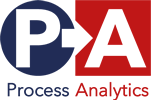Mannhardt, F. (2022). Responsible Process Mining. In W. M. P. van der Aalst, & J. Carmona (Eds.), Process Mining Handbook (pp. 373-401). (Lecture Notes in Business Information Processing; Vol. 448). Springer. https://doi.org/10.1007/978-3-031-08848-3_12
Abstract
The prospect of data misuse negatively affecting our life has lead to the concept of responsible data science. It advocates for responsibility to be built, by design, into data management, data analysis, and algorithmic decision making techniques such that it is made difficult or even impossible to intentionally or unintentionally cause harm. Process mining techniques are no exception to this and may be misused and lead to harm. Decisions based on process mining may lead to unfair decisions causing harm to people by amplifying the biases encoded in the data by disregarding infrequently observed or minority cases. Insights obtained may lead to inaccurate conclusions due to failing to considering the quality of the input event data. Confidential or personal information on process stakeholders may be leaked as the precise work behavior of an employee can be revealed. Process mining models are usually white-box but may still be difficult to interpret correctly without expert knowledge hampering the transparency of the analysis. This chapter structures the topic of responsible process mining based on the FACT criteria: Fairness, Accuracy, Confidentiality, and Transparency. For each criteria challenges specific to process mining are provided and the current state of the art is briefly summarized.
